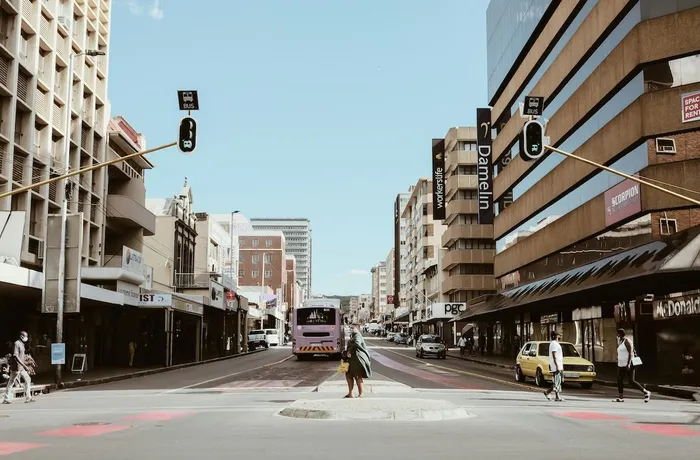
With the South Africa Metro Trading Services Program, metropolitan municipalities will receive grants from the national government, based on results achieved.
Image: Supplied
South African cities are facing growing challenges in delivering basic services, with declining access and reliability, financial instability, and underinvestment in infrastructure over the past decade.
The World Bank’s Board of Executive Directors has approved the South Africa Metro Trading Services Program, the first-ever Program-for-Results (PforR) operation in the country.
This landmark program aims to improve the accountability, financial health, and operational performance of essential urban services in the country’s eight largest metropolitan municipalities.
Programme impact
The program is intended to benefit the metropolitan municipalities (metros) of Buffalo City, Cape Town, Ekurhuleni, Johannesburg, Tshwane, eThekwini, Mangaung, and Nelson Mandela Bay. Together, these municipalities are home to 22 million people and account for 85% of South Africa’s economic activity.
The PforR, a financing instrument that links the disbursement of funds directly to the achievement of specific results, will support government-led reforms and institutional strengthening in trading services, namely: water supply and sanitation, electricity, and solid waste management.
These services are vital for both residential and industrial users and are intended to operate on a financially sustainable basis.
“The Metro Services Trading Program represents a milestone in South Africa’s partnership with the World Bank Group, showcasing a shift toward results-driven financing to accelerate progress in public service delivery and governance,” says Satu Kahkonen, World Bank Division Director for South Africa.
“This operation is designed to incentivise real performance improvements, accountability and institutional reforms through a results-based approach, contributing to better lives and livelihoods in South Africa.”
Rewards for cities meeting targets.
The program includes a $925 million World Bank loan and forms part of a larger $3 billion (R55 billion) government effort. Cities that meet performance targets will unlock access to this broader funding to strengthen essential services.
The government will use the loan to fund a new performance-based fiscal grant to the metros, as part of the government's Metro Trading Services reforms. Metros will receive grants from the national government, based on results achieved.
Should results not be achieved, the grants are not released. This approach incentivises performance and promotes accountability to citizens.
“This six-year program, designed by the Government of South Africa and backed by the World Bank, will support the turnaround of essential services and enhance the resilience of our cities, says Enoch Godongwana, Minister of Finance of the Republic of South Africa.
“Metros will unlock the incentive grant funding by demonstrating improved institutional and service delivery performance in water supply and sanitation, electricity and solid waste management. This will contribute to local capacity building, making use of South Africa’s own institutions and processes.”
Minister Godongwana emphasised that the trading services reform is a flagship government-wide reform under Operation Vulindlela Phase II, which was approved by the Cabinet in March 2025. To ensure that the reform is championed at a local level, the minister met with mayors from each metro municipality in October.
The Program-for-Results model focuses on "payment for good performance".
The World Bank only disburses funds when pre-agreed results, such as institutional reforms, improved collection rates, asset management practices, and service delivery benchmarks, are achieved and independently verified.
This ensures a strong focus on outcomes, institutional change, and long-term sustainability.
The MTSP builds on the experience of the National Treasury’s Cities Support Programme (CSP), which was established in 2011 and is focused on improving performance and strengthening governance to achieve inclusive, urban economic growth.
The CSP is implemented in the eight metros by the National Treasury of South Africa with the support of partners, including the World Bank.
Property sector supports Metro Services Trading Program
The property sector says it is supportive of low-interest rate financing, which is performance-based loans which are disbursed upon the achievement of predefined results in strengthening local government performance to deliver infrastructure or improving access to services in disadvantaged neighbourhoods, says Neil Gopal, CEO at the South African Property Owners Association(SAPOA).
“Many municipalities in SA are plagued with a myriad of challenges, from the mismanagement of financial resources to corruption, which ultimately results in poor service delivery and infrastructure failures.
The organisation which represents commercial property interests within the real estate industry says the future success of municipalities is based on their current management of finances and their ability to remain financially stable and sustainable.
“This would be crucial to ensure continued growth, investment and service delivery to the communities which they serve.”
Independent Media Property
Related Topics: